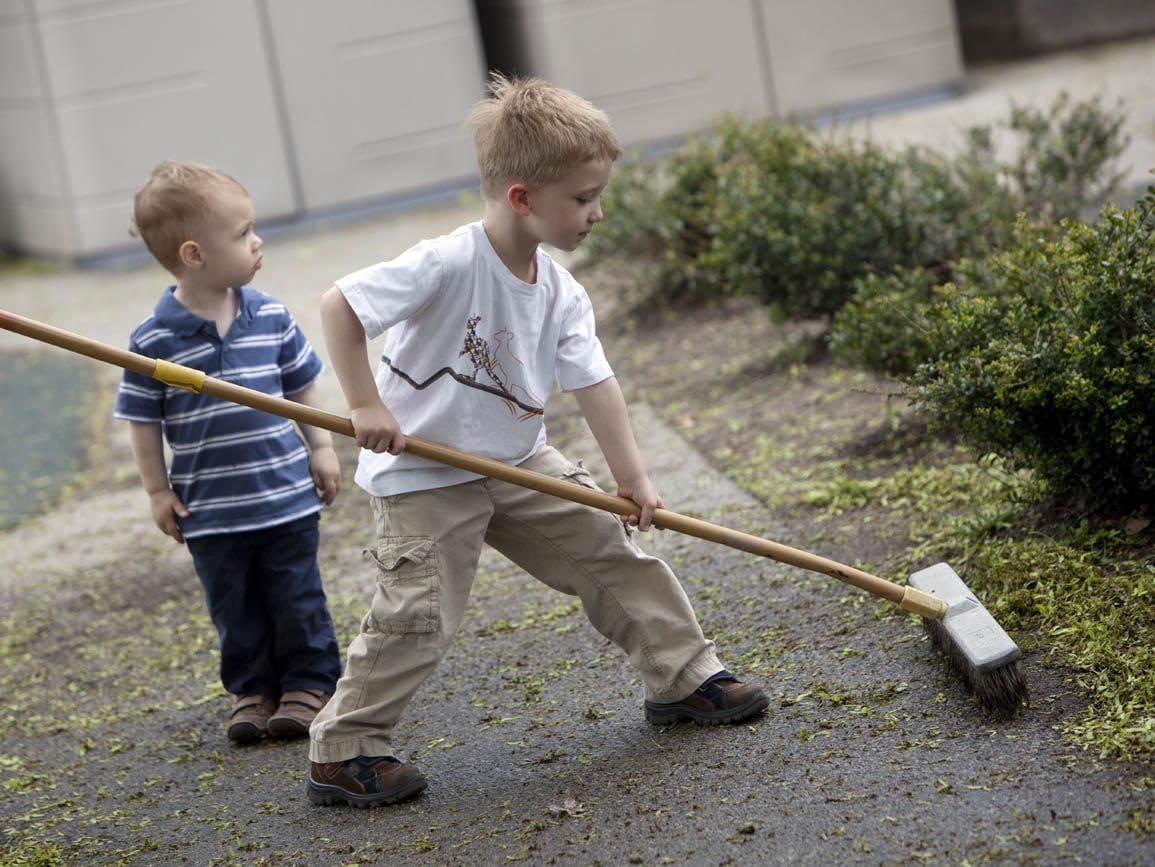Our lives as parents are increasingly busy these days and sometimes its hard to find time to accomplish everything around the house. One way to balance work and play is to combine them and involve the whole family in doing household chores.
If we understand what gets in the way and what may help when it comes to doing chores, then we can have a better chance of having children be participating family members.
Chores for Kids: What Discourages Children from Helping?
- Unclear expectations. Children need to understand what the chore is and what we expect of them. Be clear about what is considered a job well done: doing the dishes or simply a "good try?"
- Inconsistency. When it comes to chores, any previous effort to establish expectations can get derailed by inconsistency. Think carefully before saying, "I guess you can skip feeding the dog this morning; Ill do it." And if parents or caregivers dont agree on what is expected of children, when to make exceptions, or arent equally adept at refusing to give in to child procrastination or defiance, children usually figure out how to divide and conquer.
- Time. It takes time to teach children how to do chores and to establish expectations. Busy parents and children can easily use lack of time as a rationale for either adults doing the chore or leaving it undone.
- Siblings. Siblings can become really good at subverting parent expectations. "Its not fair" can become a mantra of older siblings when expectations for them increase with their growing competence. Try to set clear expectations that are appropriate and fair for each child. Discussing the chore plan as a family can give children an opportunity to voice concerns and help set a plan that works for everyone.
How to Help Children Do Chores
- Give young children simple tasks. Children as young as two can be given household chores, such as helping take clothes out of the dryer, putting their clothes away, cleaning up after a meal by throwing away the paper napkins or wiping tables or counters, carrying a backpack from the car into child care, or turning off lights at bedtime. Keep expectations realistic when children are very young or chores are new: the goal is establishing the routine and teaching kids responsibilities, rather than how clean the table is or how neatly folded his clothes are.
- Choose age-appropriate chores. Establish that chores are based on developmental levels: older children should be expected to do more. These chores can include some that take a little longer, require more effort, and are more complicated: setting or clearing off the dinner table, sorting or folding the laundry, washing the dishes, sweeping the kitchen, or taking out the garbage.
- Use chore calendars & reward systems. Calendars and chore charts are not only good organizational systems, but can also be used for to help reinforce language and math skills for children.
- Consider the timing of chores for kids. Assign or schedule chores for a time that work best for your child. Right after school or immediately before bed when kids need some down time may not be the best times for chores.
- Include all family members in chores. Reduce conflict and resistance by making it clear to all family members that "everyone has to pitch in." It is also reasonable to assert that you work hard outside of the home as part of your own effort.
- Recognize a job well done. Find a good balance between praise and recognition of the effort children make to complete household chores. Chores are part of living and should be considered part of the family contribution rather than a task that calls for effusive praise. A simple "great work getting your chores done on time" recognizes your childs effort. Likewise, allowances for chores as a means of sharing the family income for "all the work we do" can be a good way to recognize efforts and teach children about money.
- Involve children in the decision-making process. Listen and give clear choices about tasks. Ask, "What chores are you interested in doing? Would you prefer to clear the table or put the dishes in the dishwasher?" But remember: you are "your childrens boss" and its okay to assign household chores that they may not want to do.
- Try to have fun. Family chores can be fun for children. Laundry can involve games such as sorting, matching, and tossing socks in the basket. Listening to music can add some life to chores—a little song and dance can become a part of doing chores together.
As with all aspects of good parenting, it is much easier to talk or write about turning children into responsible helpers than to actually make it happen, but the effort is worth it.
- Is your house a mess of toys and clutter? Our blogger shares toy storage solutions that make clean-up at home easier for children and parents.
- Get some ideas and tips for involving kids in kitchen chores.
- In our Organization for Busy Families webinar, working parents can get simple organization tips and solutions from meal planning to homework management.
- Our parenting community shares ideas for giving kids allowance for chores. Read their advice and offer your thoughts.
- Our Learning at Home activities website has many helpful ways to engage children in chores.





